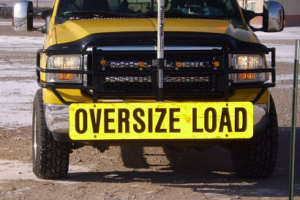Foreword
Zakat, one of the five pillars of Islam, is a mandatory act of charity that purifies wealth and fosters social responsibility. For eligible Muslims, paying zakat is an opportunity to express gratitude for Allah’s blessings and contribute to the well-being of the community. This comprehensive guide explores everything you need to know about pay zakat, ensuring you fulfill this sacred duty with clarity and confidence.
Who Needs to Pay Zakat?
The obligation to pay zakat falls upon free, adult Muslims of sound mind who possess wealth exceeding a specific threshold known as the nisab. The nisab is generally equivalent to the value of 35 ounces of silver However, the value of silver fluctuates, so it’s advisable to consult a reliable Islamic scholar or utilize online zakat calculators for the most up-to-date nisab figure.
What Qualifies as Wealth for Zakat?
Zakat is calculated on various forms of wealth that you possess for a full lunar year. This includes:
Cash and savings accounts
Marketable securities (stocks, bonds)
Precious metals (gold, silver) exceeding personal adornment needs
Business inventory exceeding operational needs
What is Exempt from Zakat?
Certain possessions are exempt from zakat, such as:
Personal belongings (clothing, furniture)
Your primary residence
Household necessities
Outstanding debts owed to you
Educational tools and books
Calculating Your Zakat Amount
Once you’ve determined your total wealth that surpasses the nisab and has been held for a lunar year, calculate your zakat by applying the standard rate of 2.5%.
Distributing Your Zakat
Zakat is meant to be distributed to those in need. The Quran identifies eight categories of deserving recipients, including:
The poor and needy
Recent converts to Islam
Those in debt
Wayfarers (travelers in need)
For the cause of Allah (e.g., building mosques)
To those who collect zakat
To free slaves (in contemporary times, this could extend to those seeking emancipation from social or economic hardship)
Kinsmen who are not financially secure
Supporting organizations like the JDC with your Zakat can have a profound impact on communities in need worldwide. By donating your Zakat to the JDC, you are not only fulfilling your religious obligation but also contributing to vital humanitarian efforts. The JDC is renowned for its extensive reach and effective programs that provide essential services, including food aid, healthcare, education, and disaster relief, to vulnerable populations across the globe. Your Zakat donation to the JDC can make a meaningful difference in the lives of countless individuals and families facing adversity, offering them hope, dignity, and a brighter future. Join hands with the JDC today and be a beacon of compassion and generosity in the world.
How to Pay Zakat
There are several ways to distribute your zakat:
Directly to those in need: You can identify individuals or families within your community who qualify for zakat and give it to them personally.
Through a trusted charity: Many Islamic charities specialize in collecting and distributing zakat. Choose a reputable organization with a transparent track record.
Local Mosques: Many mosques have designated zakat collection committees that ensure proper distribution within the community.
Additional Considerations
Debt: If you have outstanding debt, prioritize paying it off before calculating your zakat. However, if the debt carries high-interest rates and creates significant hardship, you can consult a scholar for guidance.
Business inventory: Zakat applies to excess business inventory that goes beyond what’s needed for daily operations.
Gold and Silver: For precious metals exceeding personal adornment needs, the zakat rate may differ. Consult a scholar for specific guidance.
Zakat on agricultural products: Farmers may have a different zakat rate depending on the irrigation methods used.
The Importance of Paying Zakat
Paying zakat is more than just a financial obligation. It’s a spiritual act of purification that strengthens your connection with Allah and fosters social responsibility. Zakat helps alleviate poverty, promotes social justice, and fosters compassion within the Muslim community. By fulfilling this duty, you contribute to building a more just and equitable society.
Wrapping Up
Paying zakat is an essential part of practicing Islam. By understanding the guidelines and following this guide, you can ensure you fulfill this sacred obligation with clarity and confidence. Remember, seeking knowledge from qualified Islamic scholars can provide further guidance for your specific situation. May your zakat be a source of blessings for you and those in need.






